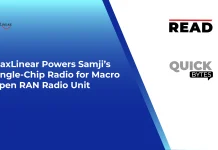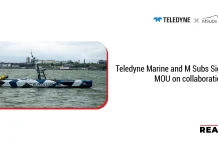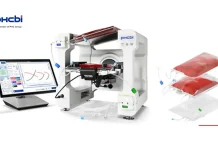Stratom announced it has been awarded a Phase II contract by the U.S. Air Force Research Laboratory to develop an expeditionary cargo mover system designed to fit into a single 463L cargo pallet position on aircraft.
The leading developer of autonomous ground vehicles and robotic systems for logistics and operational applications is developing a lightweight and compact vehicle to efficiently load and unload 463L pallets and ISU90 containers from C-130 aircraft in remote and austere airfields. This first-of-its-kind solution will enable faster, safer and more efficient cargo handling operations, enhancing the Air Force’s Agile Combat Employment (ACE) operational concept.
“With this crucial project, we’re honing our deep expertise in developing robotic solutions that can move cargo in and out of aircraft and across harsh and challenging environments, continuing our ongoing support of the warfighter’s mission,” said Mark Gordon, CEO of Stratom. “This contract win also allows our expert engineering team to further develop a cost-friendly component of our growing product family, reinforcing Stratom’s commitment to solving the world’s most difficult problems — from contested logistics to material resupply and beyond.”
Also Read: Rancher & Buoyant Partner to Enhance Secure Kubernetes for Federal Agencies
Key features of the proposed pallet mover include the following:
- Small design for easy transport and minimal cargo space usage.
- Ability to cross-deck 463L pallets and containers from the aircraft and lower it to the ground.
- Diesel-hydraulic operation for reliability across different conditions and environments.
Development of the austere 463L cargo loader will prioritize improving operational efficiency and safety while reducing the need for additional material handling equipment. By occupying a fraction of the cargo space compared to traditional equipment, Stratom’s solution allows more critical cargo to be transported.
The Phase II development will focus on creating a functional system for demonstration and user assessment. This phase brings the system closer to commercial production readiness, with potential applications extending beyond military use to include humanitarian aid, disaster relief and commercial logistics operations.
SOURCE: GlobeNewswire






